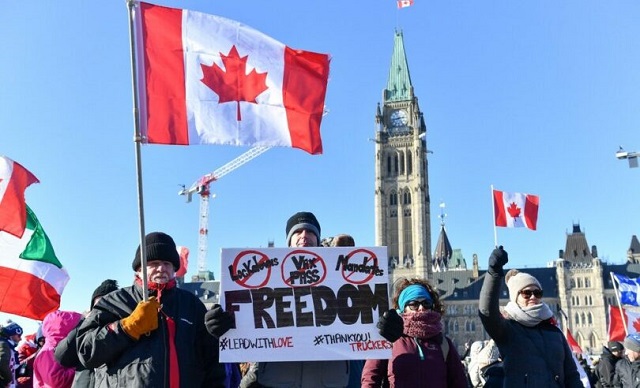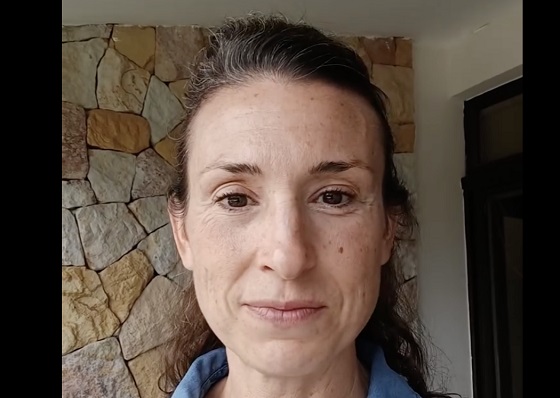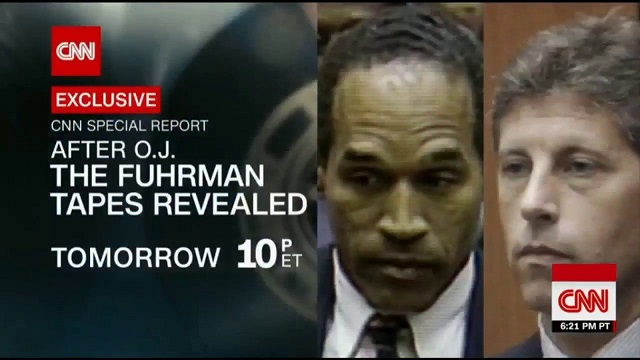COVID-19
Are your groceries dangerous? Facts from a Food Microbiologist

Don Schaffner is a professor of food microbiology at Rutgers School of Environmental and Biological Sciences. He hosts two podcasts called Food Safety Talk and Risky or Not? Here he refutes a widely seen video which urges everyone to go to great lengths to wash their groceries.

Unless you are living under a rock or have already perished from COVID-19, you’ve likely seen a YouTube video making the rounds where a medical doctor (wearing scrubs!) purports to give COVID-19 advice.
I’m not going link to the video, because if you haven’t seen it, consider yourself lucky. First of all, scrubs? Aren’t those meant for being around sick people? Why would you wear something like that in your house. It seems very irresponsible.
I’m a food microbiologist. Would you like me to give you advice on how to care for your sick kids? I don’t think so. Don’t take food safety or microbiology advice from MDs that don’t understand food, science or very much about microbiology.
There are a few things that he gets right, but I’m not going to focus on those. I’m going to spend my time here focusing on the things that he gets partly or completely wrong.
He completely misrepresented the 17 days figure from CDC. This was based on finding viral RNA, not infectious viral particles. The CDC report also does not give the methods used but cites personal communication… impossible to peer review.
Should I keep my groceries in the garage or on the porch for 3 days? This is patently ridiculous. Are you really going to keep your milk, your ice cream, your deli meats outside for three days?
This also has very important food safety implications. This sounds like a recipe for disaster, or at the very least spoiled food.
There is a tiny nugget of truth in this advice, because we know that the virus is slowly inactivated at room temperature, with a half-life of about eight hours.
But this advice presumes that all groceries are contaminated, and the simply touching the groceries will make you sick, neither of which are true.
Do I really need to disinfect all of the individual boxes & baggies everything came in? I also think that this is also advice that does not make scientific sense.
If you are concerned about the outside of food packages being contaminated, I suggest that you wash your hands and or sanitize your hands before you sit down to eat any food that you might’ve taken out of those containers.
And guess what, washing your hands before you eat is a best practice even when we’re not in a pandemic!
Do I really need to scrub all your fruits and veggies with soap before eating? This is the worst advice being given by this irresponsible MD. Soap should *absolutely* not be used to wash food. See my earlier comments: https://twitter.com/bugcounter/status/1242956925525995521…
Soap is not designed for food. As mentioned in the linked thread, soap can cause nausea, vomiting and diarrhea if ingested. Current recommendations by scientific experts including the FDA, say to wash fresh fruits and vegetables in cold water.

He also seems to have a belief that I find surprisingly common (including among food safety professionals). That is the belief that I referred to as “handwashing is magic”.
Hand washing is not magic, nor does it “sterilize” your hands as claimed in the video. The only way to sterilize your hands would be to plunge them into boiling water, which I don’t recommend for obvious reasons.
We’ve done research on handwashing in my lab. You can count on a hand wash (depending upon your technique), to likely give you somewhere between a 90 a 99% reduction in transient microorganisms on your hands.
A microbiologist would call this a 1-2 logarithm reduction. Let’s contrast that with the sterilization process used for canned foods. That would give you a 99.9999999999 percent reduction. In case you’re counting, there’s 12 nines in that number.
Is washing your hands good? Of course it is. Is it going to sterilize your hands? Absolutely not. But it is a good risk reduction technique. As is the use of hand sanitizer. So do both of those things.
If your hands are getting dry from too much handwashing, be sure to use some moisturizer.
Also re: washing produce, people may wonder about “veggie wash” products. Many of these have not been evaluated for their effect on bacteria and none have been evaluated for their affect on SARS-CoV-2, the causative agent for COVID-19.
Many of veggie washes are likely no more effective than water. On the other hand, if it makes you feel better, and you don’t mind throwing money to the veggie wash company, I say go for it.
Some people are also asking about vinegar for washing fresh produce. Again the research says it’s not much better than plain water. Save the vinegar for oil and vinegar dressing on your salad.
Are reusable bags risky? Many people use reusable bags as a responsible choice. We do this in my family as well. It’s a best practice (even before the times of pandemic) to wash your reusable bags on a regular basis.
While it is theoretically possible that a reusable bag may pick up germs, including coronavirus while in the grocery store, the biggest threat that anyone faces is someone else in the store who has COVID-19.
I would suggest that you keep your grocery bags in the car, so you have them handy the next time you go shopping. If you’re concerned that your bags might have coronavirus on them you can wash them.
You should also wash your hands after you have finished putting all your groceries away. This was also a good advice even before pandemic.
But Dr. Don, what I can do to reduce risk when grocery shopping? Many grocery stores are offering hand sanitizers at the entrance, and are offering to sanitize grocery carts. Both great ideas, and customers should take advantage if available.
My other advice is to make a list, and know what you want, and move quickly and efficiently through the store picking out the items on your list. Practice appropriate social distancing, trying your best to keep 6 feet away from other shoppers.
If there is hand sanitizer available, I also use it when I’m exiting the store, and then I’ll use it again at home once I finished putting all my groceries away and returning my reusable shopping bags to the car.
I’m going to ask you to share this tweet thread. As the video MD said it’s not about popularity. In my case it’s about combating harmful misinformation that overestimates risk, or recommends risky practices to mitigate an already very small risk.
This has been Dr. Don… now signing off. Remember as always, stay home if you can, wash your hands and use hand sanitizer, and take care of those who need it most.
PS, thank to everyone for the Twitter/Facebook love. I’ll do my best to answer questions you have, but right now my days are filled with talking with reporters, and trying to achieve a one log reduction on the concentration of email messages in my inbox.

Freedom Convoy
Trudeau’s use of Emergencies Act has cost taxpayers $73 million thus far

From LifeSiteNews
Expenses for the Emergencies Act, the use of which a federal court ruled ‘not justified,’ included $17.5 million for a judicial inquiry, $400,000 for charter flights and $1.3 million for hotel rooms for out-of-town RCMP officers.
The Liberal government’s use of the Emergencies Act against the 2022 Freedom Convoy has cost Canadian taxpayers over $73 million thus far.
According to newly released records obtained by Blacklock’s Reporter, Prime Minister Justin Trudeau’s enactment of the Emergencies Act, the use of which has since been ruled “not justified” by a federal court, to drive out Freedom Convoy protestors from Ottawa in 2022, cost the Department of Public Safety $73,550,568.
According to Blacklock’s Reporter, the $73 million figure was part of records released by the department at the request of Conservative MP Ziad Aboultaif, and despite its high number, is not the final account.
“With regard to enactment of the Emergencies Act in 2022, what was the cost burden for the government?” Conservative MP Ziad Aboultaif asked.
“Cost associated with fiscal year 2023-2024 are still to be determined,” the department responded.
According to the Department of Public Safety, most of the public safety expenses were attributed to local authorities in Ottawa and Windsor, Ontario.
“It should be noted additional funding allocated by the government to Ottawa and its partners as well as Windsor were not specifically as a result of the Emergencies Act invocation but meant to compensate both municipalities for the extraordinary expenses incurred during and after the protracted blockades,” the report said.
Other expenses included $17.5 million for a judicial inquiry, $400,000 for charter flights, and $1.3 million for hotel rooms for out-of-town RCMP officers.
The costs were incurred after Trudeau enacted the Act on February 14, 2022 to shut down the Freedom Convoy protest which took place in Ottawa.
The popular protest featured thousands of Canadians calling for an end to COVID mandates by camping outside Parliament in Ottawa. Measures taken under the Act included freezing the bank accounts of Canadians who donated to the protest.
At the time, the use of the Act was justified by claims that the protest was “violent,” a claim that has still gone unsubstantiated.
In fact, videos of the protest against COVID regulations and vaccine mandates show Canadians from across the country gathering outside Parliament engaged in dancing, street hockey, and other family-friendly activities.
Indeed, the only acts of violence caught on video were carried out against the protesters after the Trudeau government directed police to end the protest. One such video showed an elderly women being trampled by a police horse.
Recently, Federal Court Justice Richard Mosley ruled that Trudeau was “not justified” in invoking the Emergencies Act.
However, the Trudeau government has doubled down on its heavy-handed response to citizen protesters, filing an appeal with the Federal Court of Appeal – a court where 10 of the 15 sitting judges were appointed by Trudeau.
COVID-19
Pro-freedom Canadian nurse gets two years probation for protesting COVID restrictions

Ontario nurse Kristen Nagle
From LifeSiteNews
Ontario nurse Kristen Nagle, a well-known figure in Canada’s pro-freedom movement during COVID, said her sentence of two-years probation is effectively a way for the government to silence her for the foreseeable future.
A Canadian nurse found guilty of violating Ontario’s COVID rules for participating in an anti-lockdown rally and speaking out against COVID mandates says despite scoring a recent “half-win” in court, her two-year probation sentence is designed to stop her from “speaking out or going against public health measures.”
“The Crown wanted an egregious amount of $50,000. They saw my GiveSendGo, they saw the support, they saw that I was not deterred by the $20,000 sentencing and so they wanted to sentence me for $50,000- and two-years’ probation,” said Canadian nurse Kristen Nagle in a Facebook video posted on March 21.
“So, kind of a half-win, the JP (justice of peace) agreed to the two years’ probation, I don’t really know what that looks like, what that means yet, but I’m under two years’ probation, I don’t know, and $7,500. And $7,500, is really not that bad compared to $50,000.”
Nagle was heavily involved with the activist group Canadian Frontline Nurses and became a well-known face from those in the medical community in Canada who protested both the mRNA COVID jabs and lockdown dictates imposed by all levels of government.
She worked at London Health Sciences Centre (LHSC) in Ontario before being terminated in 2021 for attending anti-lockdown rallies in 2020. She resigned from the College of Nurses of Ontario in January 2023.
Nagle was found guilty by a court in February for violating Ontario Premier Doug Ford’s Reopening Ontario Act (RAO), after she attended and spoke at an anti-lockdown rally on January 22, 2022, in London, Ontario.
At the end of March, a court ruled against the Crown’s requested $50,000 fine, and instead fined Nagle $7,500, plus a victim surcharge, which brought the total to $9,375, along with two years’ probation.
The event that led to Nagle being charged had a crowd size of some 150 people, which was over the allowed 10-person limit that was in place at the time.
Nagle’s current GiveSendGo fundraising page lists regular updates regarding the various charges incurred for speaking out against COVID mandates.
While the Ontario government and mainstream media consistently championed lockdowns as a means of halting the transmission of the highly survivable coronavirus, LifeSiteNews reported from the beginning that many experts were warning that lockdowns would inflict more harm than the virus itself.
Probation sentence a tool to discourage ‘speaking out,’ nurse says
Nagle said her two-year probation now means she “[c]annot commit a crime,” and “must keep the peace” and be on “good behavior and not commit the same offense,” which she said would impede her ability to speak freely.
“It just seems crazy that when this probation is over it will be 2026! That to me just seemed absurd to think this is still looming in the background until then,” she noted in a recent email to her followers.
“It was difficult to listen to them talk about the possibility of the next thing, and that we can’t have people going against public health measures in a crisis. It would be naive of them to think that we won’t find ourselves in something similar again, so this probation is to stop me from speaking out or going against public health measures should another ‘public health emergency’ find us again,” she added.
She also thanked everyone for their support in helping her, as well as everyone’s “encouragement, prayers, and financial contributions throughout the years!”
“You have no idea how much it has meant to me and my family and lifted up my spirits when I thought I could not go on!” she wrote in her email.
“Thank you for everything! It has meant more to me than words I am able to express!”
Earlier this year, Nagel was also found guilty of two charges under the RAO for attending as well as organizing another rally in November of 2020. She was fined $20,000.
Another charge against Nagle for attending an anti-lockdown protest was withdrawn.
In 2022, she was fined $10,000 for attending an Easter church service during Ontario’s COVID lockdowns in the spring of 2021, at the Aylmer Church of God. She appealed the fine, which was later reduced to $3,750.
As recently reported by LifeSiteNews, some healthcare workers who refused to get the COVID jabs were successful in getting positive rulings from arbitrators.
Indeed, two workers from a Toronto area hospital who chose not to get the COVID shots and were then fired from their jobs were wrongfully terminated, an arbitrator ruled.
Many other recent rulings have gone in favor of those who chose to not get the shots and were fired from their jobs as a result.
Draconian COVID mandates, including those surrounding the experimental mRNA vaccines, were imposed by both the provincial Ford government as well as the federal Liberal government of Prime Minister Justin Trudeau.
In April 2021, the Ontario provincial government once again increased its COVID measures and declared a state of emergency over rising cases of the virus. It then put in place a complete ban on all outdoor gatherings that, in effect, made peaceful protests illegal in the province.
COVID vaccine mandates, which came from provincial governments with the support of Trudeau’s federal government, split Canadian society. The mRNA shots themselves have been linked to a multitude of negative and often severe side effects in children.
The jabs also have connections to cell lines derived from aborted babies. As a result of this, many Catholics and other Christians refused to take them.
-

 Economy21 hours ago
Economy21 hours agoExtreme Weather and Climate Change
-

 Freedom Convoy2 days ago
Freedom Convoy2 days agoTrudeau’s use of Emergencies Act has cost taxpayers $73 million thus far
-

 Agriculture2 days ago
Agriculture2 days agoBill C-282, now in the Senate, risks holding back other economic sectors and further burdening consumers
-

 International19 hours ago
International19 hours agoTelegram founder tells Tucker Carlson that US intel agents tried to spy on user messages
-

 Jordan Peterson2 days ago
Jordan Peterson2 days agoJordan Peterson slams CBC for only interviewing pro-LGBT doctors about UK report on child ‘sex changes’
-

 Frontier Centre for Public Policy2 days ago
Frontier Centre for Public Policy2 days agoThe Smallwood solution
-

 Alberta1 day ago
Alberta1 day agoDanielle Smith warns arsonists who start wildfires in Alberta that they will be held accountable
-

 National1 day ago
National1 day agoCanada’s Governor General slammed for hosting partisan event promoting Trudeau’s ‘hate speech’ bill






